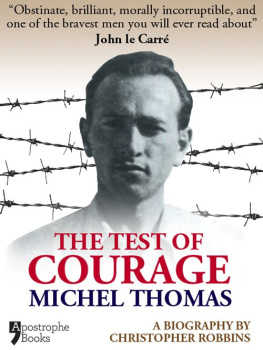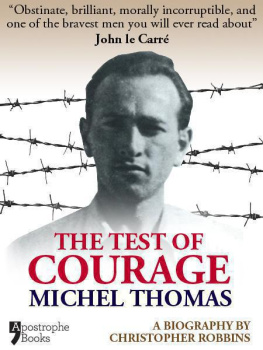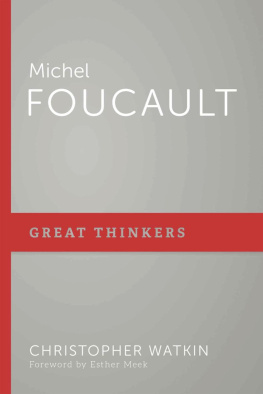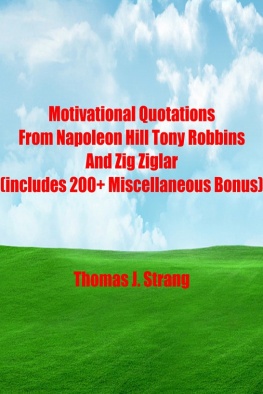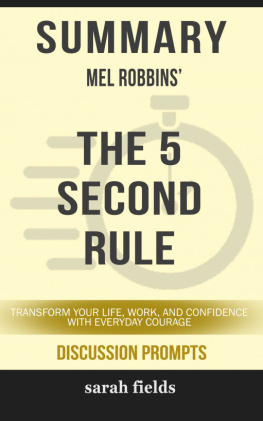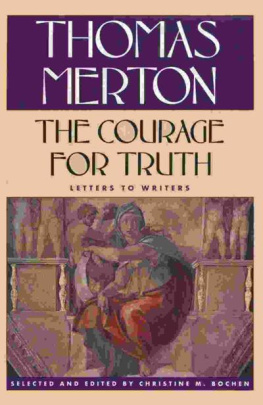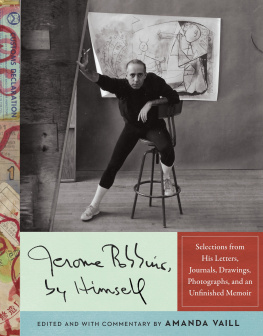Christopher Robbins - The Test of Courage: Michel Thomas
Here you can read online Christopher Robbins - The Test of Courage: Michel Thomas full text of the book (entire story) in english for free. Download pdf and epub, get meaning, cover and reviews about this ebook. year: 2014, publisher: Apostrophe Books, genre: Detective and thriller. Description of the work, (preface) as well as reviews are available. Best literature library LitArk.com created for fans of good reading and offers a wide selection of genres:
Romance novel
Science fiction
Adventure
Detective
Science
History
Home and family
Prose
Art
Politics
Computer
Non-fiction
Religion
Business
Children
Humor
Choose a favorite category and find really read worthwhile books. Enjoy immersion in the world of imagination, feel the emotions of the characters or learn something new for yourself, make an fascinating discovery.
- Book:The Test of Courage: Michel Thomas
- Author:
- Publisher:Apostrophe Books
- Genre:
- Year:2014
- Rating:4 / 5
- Favourites:Add to favourites
- Your mark:
- 80
- 1
- 2
- 3
- 4
- 5
The Test of Courage: Michel Thomas: summary, description and annotation
We offer to read an annotation, description, summary or preface (depends on what the author of the book "The Test of Courage: Michel Thomas" wrote himself). If you haven't found the necessary information about the book — write in the comments, we will try to find it.
The Test of Courage: Michel Thomas — read online for free the complete book (whole text) full work
Below is the text of the book, divided by pages. System saving the place of the last page read, allows you to conveniently read the book "The Test of Courage: Michel Thomas" online for free, without having to search again every time where you left off. Put a bookmark, and you can go to the page where you finished reading at any time.
Font size:
Interval:
Bookmark:
In memory of Freida and Idessa, and of Georgina
Often the test of courage is not to die but to live.
Vittorio Alfieri (1749-1803)
Prologue
As a natural sceptic I would not have been inclined to believe the biography of Michel Thomas if I had not been told about him by someone whose own wartime experiences were beyond doubt. My friend spoke of a man who had endured hell in the early years of the war through internment in concentration and deportation camps in France, but who had refused to become a victim. He had escaped to fight with the Rsistance, suffered further imprisonment and torture, and then fought with the US Army. Later, in the years directly after the war, he hunted Nazis and war criminals as a special agent with American Counter Intelligence, posing in one elaborate operation as a high-ranking Nazi intelligence officer. It was a life that seemed as fascinating as it was unlikely.
And then there was Michel Thomas equally improbable post-war reputation as one of the worlds great language masters with the ability to teach students in a matter of days. His celebrity clients included people as diverse as Woody Allen, Bob Dylan and Emma Thompson, yet his main interest was reforming the education system itself, and helping disadvantaged children. People spoke of miracles and magic, and his power to hypnotise, read minds and block pain. It was also said, by one of the great secret service cryptographers of the Second World War, that it was impossible to lie to him.
You should talk to Michel, my friend said. Youll find him interesting.
Michel Thomas proved to be a quietly spoken, soberly-suited gentleman, with the old-fashioned, courtly manners of another age, but even during our first encounter, when the conversation was superficial and general, I became aware that I was in the presence of a highly unusual and unique individual.
He exuded intensity and warmth and I received an impression of immense self-confidence and inner strength that was almost tangible. In time, I would come to understand that beneath the calm exterior and easy charm, a constant anger burned white hot, and that Michel was as tough as anyone I had ever met, a man of steel. But after that first, brief meeting I left charged with an inexplicable energy and enthusiasm. True to his reputation, he had cast a spell of sorts.
We began to meet often whenever he was in London, and I sought him out in New York and Los Angeles. He seemed perpetually on the move and forever at work. We had long lunches that lasted until evening, and dinners that stretched into the early hours of the morning. I proposed chronicling his life story and Michel agreed. We came to an understanding whereby he would answer questions about all areas of his life, and I would be free to write the book in my own way, interview whomever I wished, and pursue any and every independent avenue of research. Michel would then have access to the final manuscript to correct errors of fact, and the editing process would be one of mutual consent.
The result was hundreds of hours of taped interviews that became the foundation of this book. Few men alive can have witnessed so much raw history, and Michels experiences have been kept alive by a unique form of emotional memory-consciously developed as a child - that relives rather than recalls past events. Memory of such power and immediacy can be a painful gift, and it has endowed Michel with what he describes as, A past that does not pass.
But memory, however powerful, inevitably distorts and telescopes time. Events are subconsciously ordered and re-arranged, and even if the past is held on to and not allowed to pass, it is edited and coloured and becomes blurred. Michels personal history is bolstered and verified by a suitcase full of personal papers that is never far from his side. In addition I unearthed a wealth of documents that fixed the principal dates and events of every period of his life. These came from a wide range of sources: French government and court records giving the dates of internment and transportation, family letters, official accreditation cards from the Rsistance, ID cards from the US Army and Counter Intelligence, reports written at the time by combat and intelligence colleagues, and numerous interviews with contemporaries from the various periods of Michels life. There were also finds in the US National Archives and Army records.
The more I learned about Michel, the more interested I became in the connection between the experiences of his life and the revolutionary system of teaching languages that has evolved from it. I interviewed university professors and academics in an attempt to understand the technique, and spoke to scores of students - ranging from ambassadors and movie stars, to businessmen, nuns and schoolchildren - to confirm the results.
For me, the experience has been both an education and a remarkable journey. To follow the life of Michel Thomas is to be handed a human route map to some of the most disturbing history of the twentieth century, and to be guided along its treacherous roads by an eyewitness with a truly original mind. It seems from what I know that I am the only living survivor of many of these events. I have never pushed memory away. I have nurtured, not buried it. If I am the only survivor I owe it to those who have died to remind people of the facts. I am a witness.
IX - Success
The Polyglot Institute began to attract increasing interest. At first people walked in off the street, then, as word spread, actors and celebrities started to take the course. The press wrote articles about Michel and his method, describing him as a language wizard, and the institute became fashionable among the rich and famous.
I considered my school as a laboratory. Early on I developed a system that promised a high level of achievement in six weeks. A very short time then. The system would continue to evolve through ceaseless innovation and experiment over the next twenty-five years until, with the occasional refinement and polish, it became what it is today. In three days students are now guaranteed a comprehensive knowledge of a western languages grammar, together with a functional vocabulary, enabling them to write, read and converse in all tenses - without the need to memorise by rote, take notes or complete homework.
In the early days, however, not all the citizens of Beverly Hills burned with the desire to learn. One man wandered into the school, took a hundred-dollar bill from his wallet and waved it under Michels nose. Thats the only language I need in this world - US Green! Michel also found it expedient to change the name of his school to the Michel Thomas Language Centre after he discovered that nobody seemed to know what polyglot meant.
Some of the research conducted along the way led up the occasional blind alley. In 1958, for example, Michel was invited by Laura Huxley - the wife of Aldous Huxley - to take part in a controlled experiment with LSD at Rancho de la Puerta, in Tecate, Mexico. The drug was relatively unknown at the time and remained legal until 1968. I heard of this new substance imported from Switzerland and the claim that it widened reciprocity in regard to learning, so I was interested. I thought I might be able to apply it - that it might be another tool to probe the learning process of the mind. I had no idea what I was in for.
The LSD was supplied direct by its creator, Dr Albert Hoffman of Sandoz, Switzerland, who had discovered it by chance in 1943 when working on a drug for migraine. Lysergic acid diethylamide was a by-product developed from a fungus that grows on rye, and the doctor accidentally ingested a dose in the laboratory. He realised he was on to something revolutionary when the short car journey home seemed to take centuries.
Michel arrived at Tecate for the two-day experiment and joined a group of a dozen volunteers, including two doctors, and Michael Murphy, founder of Esalen, the original alternative spiritual retreat in California. Most members of the group were handed a single 100 mg tab of LSD, two were given placebos, and Michel requested a double dose, as befitted a man interested in accelerated learning. Laura Huxley was one of two guides who did not take the drug, but she explained to the group what they might experience. Its heaven and hell and everything in between. It can bring out an angel or a devil and you do not know which one is going to pop up. You must have no preconceived opinions. You must give up control and be prepared for ego loss. Its like dying and trying not to die. Paranoia lurks, but remember the sensations are psychological not physical.
Next pageFont size:
Interval:
Bookmark:
Similar books «The Test of Courage: Michel Thomas»
Look at similar books to The Test of Courage: Michel Thomas. We have selected literature similar in name and meaning in the hope of providing readers with more options to find new, interesting, not yet read works.
Discussion, reviews of the book The Test of Courage: Michel Thomas and just readers' own opinions. Leave your comments, write what you think about the work, its meaning or the main characters. Specify what exactly you liked and what you didn't like, and why you think so.

